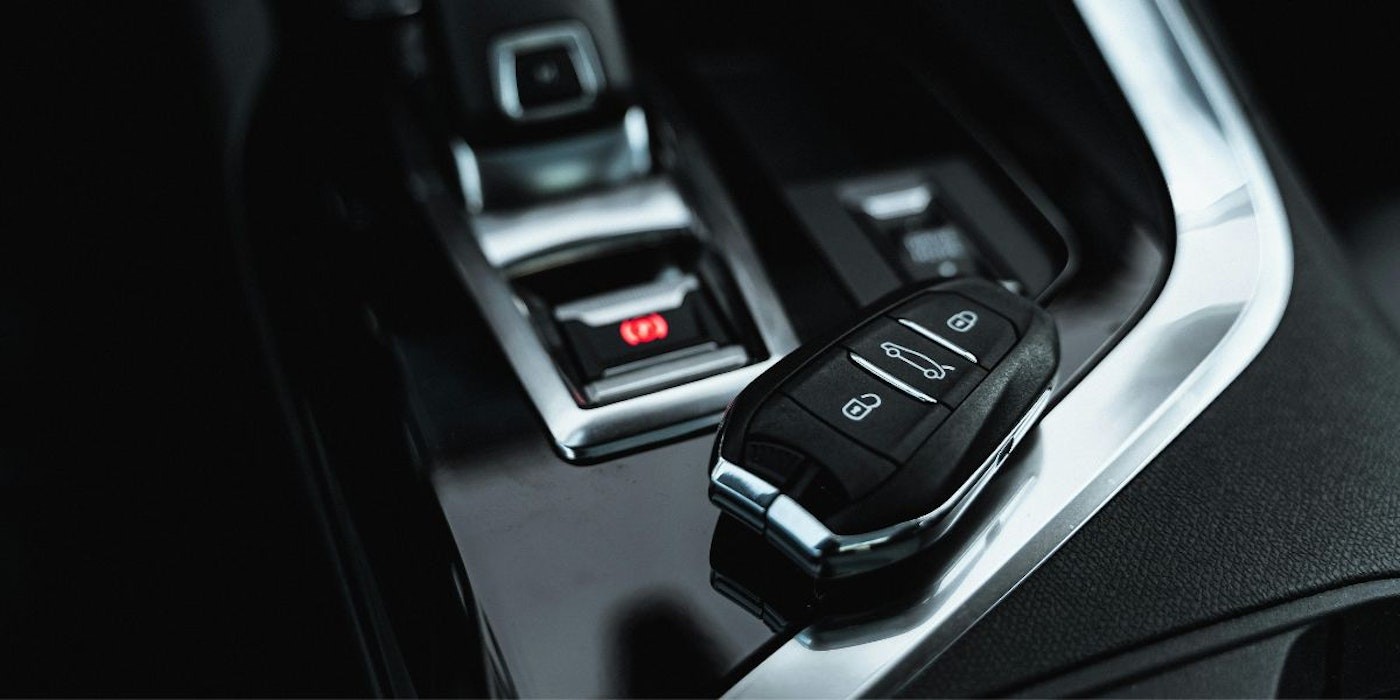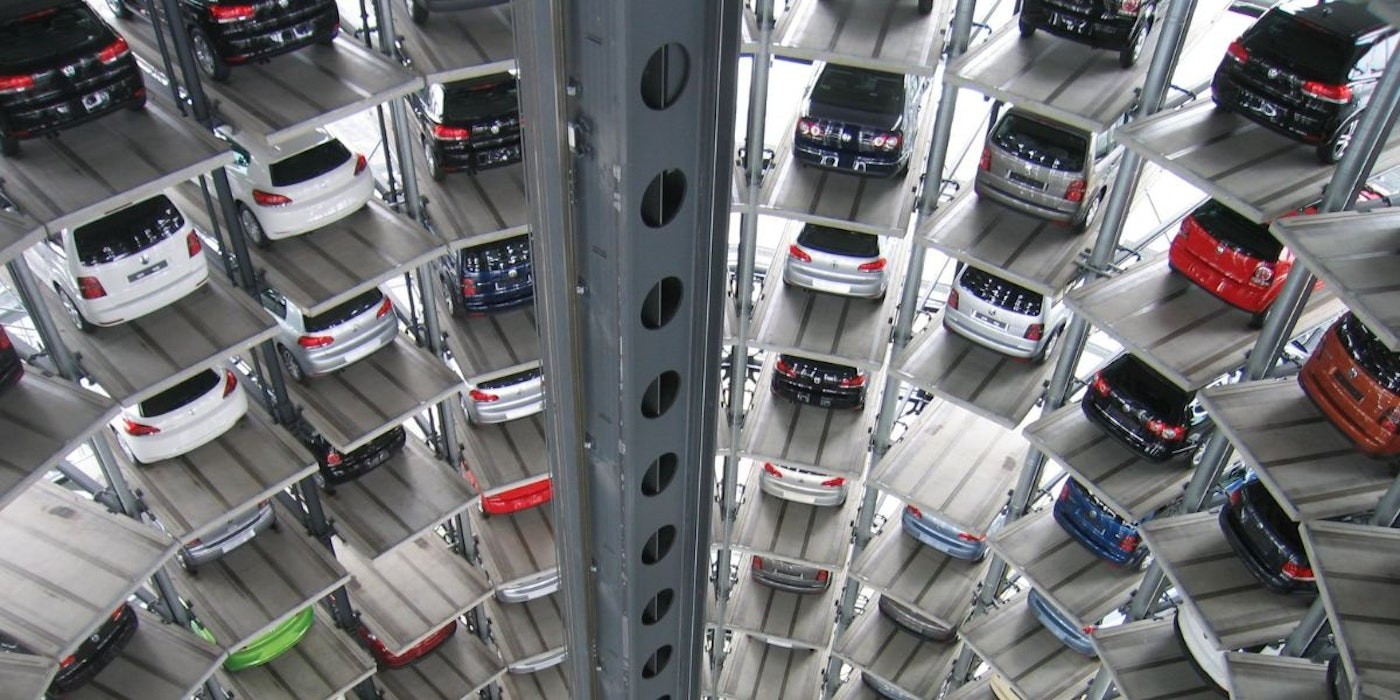Is Getting An Extended Warranty Worth It On New & Used Cars?

When purchasing a new or used car, one important consideration is whether to invest in an extended warranty. While new cars typically come with a manufacturer's warranty, an extended warranty can provide additional coverage and peace of mind. However, it's essential to weigh the cost and coverage options to determine if it is worth buying for your specific situation.
An extended warranty extends the warranty period beyond the manufacturer's warranty and covers certain repairs and maintenance expenses. It can be beneficial for both new and used car owners, providing protection against unexpected repair costs and potentially increasing the value of your vehicle.
Extended warranties are available through various sources such as the dealership, third-party warranty providers, or the manufacturer itself. The cost and coverage can vary significantly depending on the type of warranty, the length of coverage, and the specific coverage options included.
Key Takeaways:
- Consider the cost of the extended warranty and weigh it against potential repair expenses.
- Evaluate the coverage options offered by the warranty to ensure they align with your needs.
- Research the reputation of the warranty provider, whether it is the dealership, a third-party provider, or the manufacturer.
- Take into account the warranty period and how long you plan to keep the car.
- Assess the value of your vehicle and the potential impact on its resale value with an extended warranty.
What is an Extended Car Warranty?

An extended car warranty is a valuable option for both new and used cars, providing additional coverage beyond the manufacturer's warranty. This type of warranty kicks in after the manufacturer's warranty expires and offers protection for selected components of the vehicle, such as the engine, transmission, or differential.
The coverage items included in an extended car warranty vary depending on the policy you choose. Some warranties provide comprehensive coverage, often referred to as "bumper-to-bumper" warranties, which cover a wide range of mechanical and electrical parts. However, it's essential to carefully read the product disclosure statement to understand what is specifically covered, as normal wear and tear is typically not included.
The cost of extended warranties can vary significantly, ranging from affordable bargain basement policies to more comprehensive and expensive options. It's crucial to assess the warranty cost about the potential repair costs you may face without coverage.
To make an informed decision, thoroughly analyze the coverage options offered by different warranty providers. Consider the specific parts that are covered, the duration of coverage, and any additional benefits or services included in the warranty policy. This will help you determine whether an extended car warranty aligns with your needs and budget.
When purchasing an extended car warranty, always refer to the product disclosure statement provided by the warranty company. Understanding the terms and conditions, including any exclusions, will help ensure that you have a clear understanding of the coverage and can make an informed decision.
Dealer vs. Manufacturer Extended Warranty

When considering an extended warranty for your car, you'll come across two main types - dealer-extended warranties and manufacturer-extended warranties. It's essential to understand the differences between the two to make an informed decision.
A dealer extended warranty is offered by the dealership from which you purchase the car. These warranties may come with additional restrictions, such as requiring you to have all servicing and repairs done exclusively at the dealership. While this may provide convenience, it can also result in higher servicing costs compared to using an independent mechanic.
On the other hand, manufacturer-extended warranties are generally transferable from owner to owner, meaning that even if you sell the car, the warranty can be passed on to the new owner. This can add value to your vehicle if you decide to sell it in the future. Additionally, manufacturer warranties often allow you to have servicing and repairs done at any accredited provider, providing you with more flexibility and potentially lower servicing costs.
When choosing between a dealer-extended warranty and a manufacturer-extended warranty, it's crucial to consider the warranty restrictions and servicing limitations. Evaluate your needs and preferences, including your preferred mechanic and potential servicing costs, before making a decision. By understanding these factors, you can choose the extended warranty that best suits your requirements.
It's also worth mentioning that Australian consumer law provides consumer guarantees and support for the vehicle beyond the manufacturer's warranty. This ensures that as a consumer, you have certain rights and protections in place, regardless of the type of extended warranty you choose.
Factors to Consider for Extended Car Warranty

When deciding whether to purchase an extended car warranty, there are several important factors to consider. These factors can help you assess the value and relevance of an extended warranty for your specific circumstances.
Type of Car
The type of car you own plays a significant role in determining whether an extended warranty is worth it. If you own a more expensive or less reliable vehicle, the risk of failure and potential repair costs may be higher. In this case, an extended warranty can provide added financial protection and peace of mind.
Amount of Driving
Your driving habits also impact the value of an extended warranty. If you drive frequently and put more mileage on your car, there is a higher chance of encountering issues that may require costly repairs. In such cases, having extended warranty coverage can help mitigate these potential financial risks.
Duration of Ownership
The duration for which you plan to own the vehicle is another crucial factor. If you intend to keep the car beyond the manufacturer's warranty period, an extended warranty can provide continued coverage and protection against unexpected repair expenses.
Extended Warranty Coverage
It's important to carefully review the coverage offered by the extended warranty. Different warranties cover different components and types of repairs. Consider whether the warranty covers the specific areas where you anticipate potential problems and if it provides adequate protection for your vehicle's reliability needs.
Cost of the Extended Warranty

The cost of the extended warranty should be factored into your decision-making process. Consider the price of the warranty about the potential repair costs you may incur. You'll want to ensure that the cost of the warranty does not exceed the financial risk you are willing to assume.
Limited Coverage for Wear and Tear
One aspect to be aware of is that many extended warranties provide limited coverage for wear and tear. This means that certain components or repairs may not be covered. Evaluate whether the limited coverage aligns with your vehicle's condition and any foreseeable issues it may encounter.
By considering these factors, you can make a more informed decision about whether an extended car warranty is worth it for you. It is essential to weigh the potential benefits against the associated costs and risks.
Restrictions and Considerations with Extended Warranties
When considering an extended car warranty, it is important to take into account the various restrictions and considerations that come with it. These factors can significantly impact your overall warranty experience. Here are some key points to keep in mind:
- Warranty Servicing: Many extended warranties require servicing to be done exclusively at specific dealerships or service centers to maintain the validity of the warranty. This can result in higher servicing costs compared to using independent mechanics.
- Risks of Independent Mechanics: While using independent mechanics might save you money on servicing costs, it is crucial to be aware that some extended warranties may become void if the car is not serviced by authorized dealerships or service centers. This can expose you to potential risks and uncertainties.
- Extended Warranty Validity: It is important to carefully review the terms and conditions of an extended warranty to understand its validity period. Some warranties may have specific time limits or mileage restrictions that need to be considered.

- Warranty Coverage: Different extended warranties offer varying levels of coverage. It is essential to thoroughly review what is included and excluded in the warranty coverage before making a decision. This will help you determine if the warranty adequately meets your needs and expectations.
- Repair and Service Options: Understanding the repair and service options provided by the extended warranty is crucial. This includes knowing which repair costs are covered, as well as the availability and convenience of authorized service centers.
- Warranty Restrictions: Every extended warranty comes with certain terms and conditions that need to be followed in order to maintain the validity of the warranty. It is important to familiarize yourself with these restrictions and ensure compliance to avoid any potential issues later on.
- Australian Consumer Law Protection: It is worth noting that extended warranties are additional to the protection offered under the Australian Consumer Law. This means that as a consumer, you have certain rights and guarantees even beyond the coverage provided by the extended warranty.
Considering these restrictions and considerations will help you make an informed decision about whether an extended warranty is the right choice for your circumstances. It is essential to weigh the potential extra servicing costs against the coverage benefits and understand the protection provided by the Australian Consumer Law.
Australian Consumer Law and Extended Warranties

Australian Consumer Law provides strong consumer guarantees that aim to protect buyers against faulty products and ensure that the car or product will perform as reasonably expected. This means that even after the manufacturer's warranty expires, car manufacturers are required to provide a reasonable period of support for their vehicles.
When considering whether to purchase an extended warranty, it's important to evaluate the potential value it offers. With generous manufacturer warranties already in place, you need to carefully assess whether an extended warranty truly provides additional coverage and benefits that justify the cost.
However, it's worth noting that dealerships may try to pressure you into purchasing an extended warranty, emphasizing the need for awareness of your car buyer rights. Don't be swayed solely by dealership pressure; take the time to understand the warranty coverage, terms, and potential value it offers.
By being informed about the Australian Consumer Law and your consumer rights, you can make a well-informed decision about whether an extended warranty is necessary for your specific circumstances. Remember, it's essential to weigh the potential benefits and costs before committing to an extended warranty.
When is an Extended Car Warranty Worth It for Used Cars?
Generally, opting for an extended warranty when purchasing a used car may not be the most advisable choice. Many warranty companies tend to charge premiums that surpass potential repair expenses, leading to the underutilization of the purchased warranty. Despite this caution, exceptions exist. If the used car exhibits a track record of poor reliability, contemplating an extended warranty might prove beneficial. Additionally, an exclusion warranty—covering everything except specific exclusions—at a reasonable cost could offer comprehensive coverage, justifying the expense.

When it comes to used cars, the original factory warranty and the option to buy extended coverage warrant careful consideration. While manufacturer warranties and extended coverage plans are often available through dealerships, it's crucial to assess whether the added expense is truly warranted. Analyzing the reliability of the specific make and model, especially in the case of sports cars or vehicles with known mechanical issues, can guide the decision-making process.
For those inquiring about the necessity of extended warranties, particularly on used cars, understanding the type of coverage offered is key. Powertrain warranties, bumper-to-bumper coverage, and other coverage options can vary, affecting the overall value of the extended warranty. Consumers should be aware of the terms, such as "whichever comes first," and carefully review what is covered, considering factors like axle coverage, brake pads, and trip interruption benefits.
It's essential to exercise caution and conduct thorough research before committing to an extended warranty. Although some situations may warrant the additional expense for peace of mind, the frequency of claims and the likelihood of major repairs should be carefully weighed against the upfront cost. With years of experience covering personal finance and insurance, it is recommended to consult experts or resources like the Australian Competition and Consumer Commission for guidance on consumer rights and warranty-related issues.
In summary, while extended warranties on used cars might not always be cost-effective, assessing the specific circumstances, reliability of the vehicle, and type of coverage offered can help consumers make informed decisions.

Factors to Consider:
- Used car reliability: Evaluate the reliability of the specific make and model of the used car. If it has a history of frequent breakdowns or mechanical issues, an extended warranty can provide peace of mind.
- Comprehensive coverage: Look for an exclusion warranty that covers a wide range of components, ensuring you have comprehensive protection against unexpected repair costs.
- Reasonable price: Compare the cost of the extended warranty to potential repair costs. If the warranty is reasonably priced and offers coverage that exceeds the expected repair expenses, it may be worth considering.
Ultimately, the decision to purchase an extended car warranty for a used car depends on your individual circumstances, including the vehicle's reliability, the extent of coverage offered by the warranty, and its cost. Assess these factors carefully to determine whether the extended warranty provides value and peace of mind at a reasonable price.
When to Avoid an Extended Warranty for Used Cars

There are situations when it's best to avoid purchasing an extended warranty for a used car. Here are some factors to consider:
- Manufacturer's warranty: If the used car is still covered by the manufacturer's warranty, there is no need for an extended warranty.
- Used car reviews: Checking used car reviews can provide insights into the reliability of the specific make and model. If the car has a good track record for reliability, an extended warranty may not be necessary.
- Inclusion warranty: Some extended warranties only cover specific parts, such as the engine or transmission. These inclusion warranties may not provide comprehensive coverage, leaving you exposed to additional repair costs.
- Warranty coverage: It's important to carefully review the details of the extended warranty to understand what is covered and what is not. If the coverage is limited or does not align with your specific needs, it may not be worth the cost.
- Warranty costs: Extended warranties can vary in cost, and sometimes the price may outweigh the potential benefits. Assess the cost of the warranty against the value it provides.
- Warranty company reputation: Before purchasing an extended warranty, consider the reputation and track record of the warranty company. Look for companies with a solid reputation for customer service and reliable coverage.
By taking into account these considerations, you can make an informed decision about whether or not an extended warranty is the right choice for your used car.
Conclusion
After considering various factors such as the type of car, driving habits, ownership duration, and the cost of the warranty, it is clear that deciding whether an extended car warranty is worth it requires careful evaluation. It is important to assess the coverage options and understand your consumer rights under Australian law.
When assessing the value provided by an extended car warranty, it is crucial to weigh the potential benefits against the warranty cost. Consider the specific needs and preferences that you have for your vehicle. Keep in mind that while an extended warranty may offer peace of mind, it may not always provide value in terms of coverage and protection.
In Australia, consumer rights under the Australian Consumer Law play a significant role in ensuring that you are protected. These rights provide guarantees and a reasonable period of support from car manufacturers, extending beyond the manufacturer's warranty. You should familiarize yourself with these rights and choose an extended warranty that complements the level of protection already provided by the law.
Ultimately, the decision to purchase an extended car warranty rests with you. By considering the aforementioned factors, assessing the coverage options, and understanding your consumer rights, you can make an informed decision that aligns with your needs and provides the best possible value for your vehicle.
How Driva Can Help You Finance Your Next Vehicle Purchase
Driva is your trusted partner when it comes to financing your next vehicle purchase. With a commitment to transparency and no hidden fees, Driva ensures that you have a clear understanding of the terms and conditions of your loan. By providing personalised rates tailored to your specific financial situation, Driva ensures that you receive a competitive and fair offer. What sets Driva apart is its ability to compare rates from over 30 lenders, ensuring that you get the best possible rate for your loan. With Driva, you can have peace of mind knowing that you are making an informed decision about your vehicle financing and that you are getting the best deal available. Trust Driva to help you navigate the complex world of vehicle financing with ease and confidence.
Frequently Asked Questions
What is an extended car warranty?
An extended car warranty is a service contract that extends the coverage of the manufacturer's warranty, offering additional protection for specified components and systems of the vehicle.
Is getting an extended warranty worth it on a new car?
Whether getting an extended warranty on a new car is worth it depends on various factors such as the length of the manufacturer warranty, the level of coverage provided, and your plans to keep the car for an extended period. It's advisable to carefully consider these factors before deciding to purchase an extended warranty.
What should I consider before buying an extended warranty?
Before buying an extended warranty, consider factors such as the length of the manufacturer warranty, the specific components covered, the reputation of the warranty provider, the cost of the warranty, and your intention to keep the vehicle for an extended period.
Can I get an extended warranty on a used car?
Yes, you can typically purchase an extended warranty for a used car. However, the availability and cost of the extended warranty may vary based on factors such as the age of the vehicle, its condition, and the specific warranty plans offered by dealerships or third-party providers.
What does an extended car warranty cover?
An extended car warranty may cover a wide range of components and systems depending on the specific plan chosen, including the engine, transmission, electrical systems, air conditioning, and more. It's important to review the terms and coverage details of the warranty before purchasing.
Should I buy an extended warranty from the dealership or a third-party provider?
The decision to buy an extended warranty from the dealership or a third-party provider depends on factors such as the cost, coverage offered, reputation of the provider, and the flexibility of the terms. It's recommended to compare options and carefully review the terms before making a decision.
How much does an extended car warranty cost?
The cost of an extended car warranty varies based on factors such as the provider, the level of coverage, the age and condition of the vehicle, and any additional services included in the warranty. It's important to obtain detailed quotes and compare options before making a purchase.
Do extended car warranties include roadside assistance?
A: Some extended car warranties may include roadside assistance as part of their coverage, while others may offer it as an optional add-on. It's essential to review the specific terms of the warranty to understand the inclusion of roadside assistance.
Are bumper-to-bumper warranties and extended warranties the same?
A: Bumper-to-bumper warranties typically offer comprehensive coverage for most components of the vehicle, while extended warranties may provide coverage for specific components beyond the standard manufacturer warranty. The level of coverage and specific components covered may differ between the two types of warranties.
What if I plan to keep my car for a long time - should I buy an extended warranty?
If you plan to keep your car for an extended period, buying an extended warranty may provide added peace of mind and financial security by offering protection against potential repair costs. However, it's important to evaluate the cost of the warranty and the likelihood of needing significant repairs to determine the value of purchasing an extended warranty.


.png)







